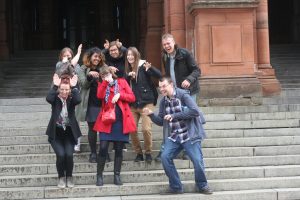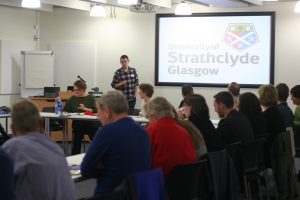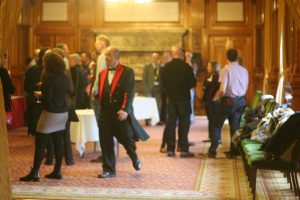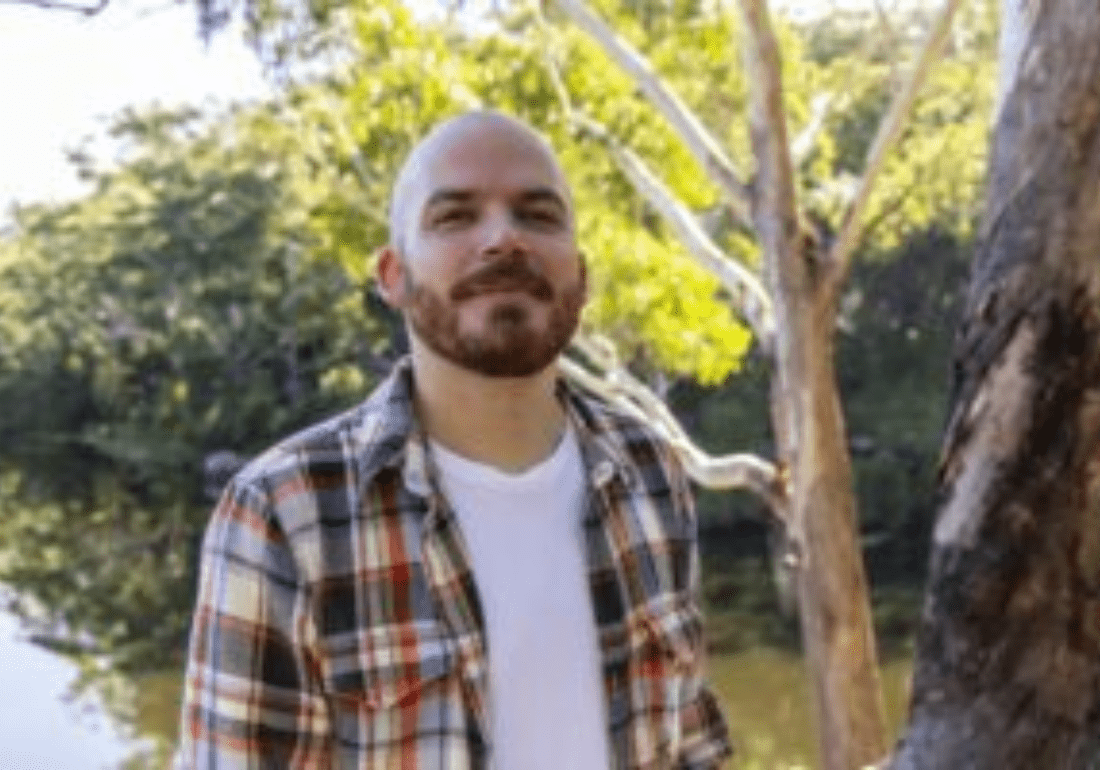 It was a funny lot of creatures who gathered in Glasgow this May. Postgraduate researchers from history, science, media and visual arts, geography, archaeology, anthropology, sociology, English and literature. We were brought together by historian and, let’s face it, star of animal studies Erica Fudge, who envisaged a post graduate symposium that looked at ‘Being Interdisciplinary in Animal Studies’. This invite-only symposium drew postgrads from all over the world, as well as academics, researchers and practitioners working in the field.
It was a funny lot of creatures who gathered in Glasgow this May. Postgraduate researchers from history, science, media and visual arts, geography, archaeology, anthropology, sociology, English and literature. We were brought together by historian and, let’s face it, star of animal studies Erica Fudge, who envisaged a post graduate symposium that looked at ‘Being Interdisciplinary in Animal Studies’. This invite-only symposium drew postgrads from all over the world, as well as academics, researchers and practitioners working in the field.
I was lucky enough to have my paper accepted, and also to gain support from the British Animal Studies and the Australasian Animal Studies Networks to attend. Lucky also, because the event was pretty eye-opening – and who can say that of every conference? In general, animal studies and related conferences do tend to be special. Interdisciplinarity is often the name of the game and people are usually so relieved to be amongst like minded people who focus on animals, and to be eating great food together, that these events are interesting and challenging. Being Interdisciplinary was all these things too, but it also got right to the heart of a very important aspect of animal studies. I was very aware that animal studies (like literary studies) is a multi-disciplinary field, but I had never seen this interdisciplinarity addressed and discussed in such a focused way before. The structure of the symposium, which called for papers (and these were circulated amongst the attendees), as well as short presentations, in-depth discussions and panel sessions, meant that what working across disciplines actually means in animal studies could be deeply explored.
 The papers ranged from discussions of bull fighting (Robin Irvine), to the use of the Illustrated Police News to understand representation (Louise Logan), to field studies into chicken husbandry in Ethiopia (Melanie Ramasawmy) and embodied understandings of fish (James Gott). Through these research papers, I was able to see how people working in different disciplines are addressing similar concerns about human-animal relationships that my own research attempts to discuss. Through the short presentations, new ideas emerged, and the attendees often focused on their practice in relation to their home discipline and animal studies. Following on from this, discussions allowed for a ‘wondering’ that is often not present in academia – encouraging ideas and allowing often unanswerable questions to arise and be considered. At night, we would all go to one of the many, many vegan pubs or restaurants and get fed until we could barely walk home (often through the infamous Glaswegian ‘summer’ rains).
The papers ranged from discussions of bull fighting (Robin Irvine), to the use of the Illustrated Police News to understand representation (Louise Logan), to field studies into chicken husbandry in Ethiopia (Melanie Ramasawmy) and embodied understandings of fish (James Gott). Through these research papers, I was able to see how people working in different disciplines are addressing similar concerns about human-animal relationships that my own research attempts to discuss. Through the short presentations, new ideas emerged, and the attendees often focused on their practice in relation to their home discipline and animal studies. Following on from this, discussions allowed for a ‘wondering’ that is often not present in academia – encouraging ideas and allowing often unanswerable questions to arise and be considered. At night, we would all go to one of the many, many vegan pubs or restaurants and get fed until we could barely walk home (often through the infamous Glaswegian ‘summer’ rains).
Travelling across the world to take part in this symposium was particularly great for me – here I could witness, first-hand, the development of some of the research that is taking place in the Northern Hemisphere. Australia and New Zealand are experiencing a strong ‘animal turn’ – a very exciting time in the field. In Glasgow I was also able to have conversations with those animal studies ‘heroes’ that I don’t always come across at conferences and events in Australia, including with Erica Fudge, Robert McKay and Steven Baker. I also met theorists that I hadn’t yet read, and whose work I will now drawn on, including Françoise Wemelsfelder, Sandra Swart and Tom Tyler. The chance to meet and talk with postgraduate researchers outside my usual sphere, including those working with literature and art, means I’ve come back with an understanding of how animal studies might be considered on a broader geographical and social level, beyond my immediate research and location.
 My only regret, aside from failing to order and eat a second v-haggis pizza, was not sharing more of my creative work, which people seemed interested in. Marrying creative and critical work in an interdisciplinary setting is a whole other blog post!
My only regret, aside from failing to order and eat a second v-haggis pizza, was not sharing more of my creative work, which people seemed interested in. Marrying creative and critical work in an interdisciplinary setting is a whole other blog post!
Now, to cram everything I learned into that thesis …


